Purging voters: Inside Republican efforts to restrict 2024 election vote
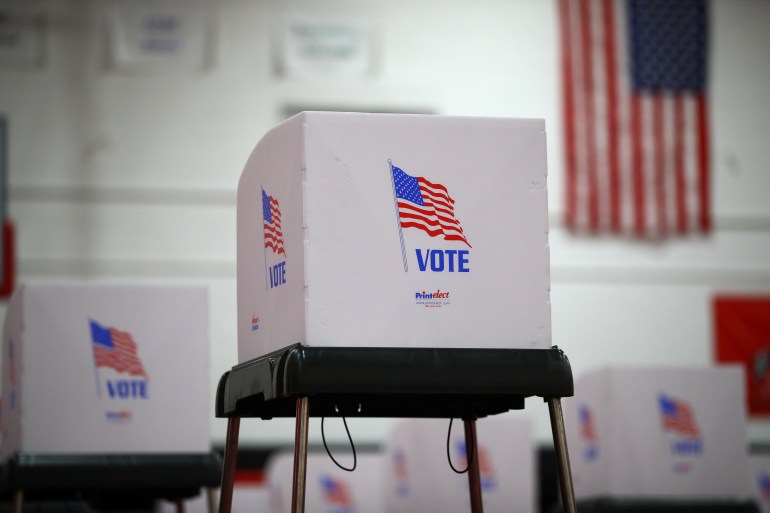
On Wednesday, the United States Supreme Court’s conservative majority gave the Republicans a win, voting to uphold Virginia’s efforts to purge voters less than a week before the 2024 election. A federal judge had previously found that Virginia had illegally purged 16,000 voter registrations over the previous two months, however, the Supreme Court granted the largely Democratic-voting state’s Republican Governor Glenn Youngkin an emergency appeal this week. A coalition of independent groups, including the US Department of Justice, had previously sued the state for violating federal election law, arguing the efforts were stripping eligible voters of their right to vote. Youngkin said voters who believe they were improperly removed from the rolls can still vote in the election because Virginia has same-day registration. “There is the ultimate, ultimate safeguard in Virginia, no one is being precluded from voting, and therefore, I encourage every single citizen – go vote,” Youngkin told reporters. On social media, Republican presidential nominee Donald Trump had previously blasted the Virginia court’s initial ruling as a “totally unacceptable travesty.” “Only US Citizens should be allowed to vote,” the former president added. The legal win, which comes as Trump and Democratic candidate Kamala Harris duke it out in the dying days of their respective campaigns, represents a broader strategy by the GOP to tighten voting regulations across key states, including Arizona, Michigan, and Nevada. A privacy booth is seen at a polling station located in the Baltimore City Community College (BCCC) Gymnasium in Baltimore, during early voting in Maryland, US, October 26, 2020 [File: Hannah McKay/Reuters] Why is this happening? Across the country, the GOP is targeting voter rolls and absentee ballots, and also monitoring elections. It says this is an attempt to ensure that the election is fair, but its opponents say these are actually attempts to suppress the vote. The Republican focus on election-related legal battles dates back to lingering distrust from the 2020 presidential election. Former President Trump’s false claims that the election was stolen have fuelled enduring scepticism within the party, where a significant number of GOP voters continue to believe in election fraud without substantial evidence. These lawsuits have become a strategy not just for election integrity but for appealing to a base that feels disenfranchised by the previous electoral outcome. How and where else is the GOP challenging the vote? In recent months, Republicans have launched lawsuits in multiple battleground states challenging voting access in attempts to purportedly boost election integrity and oversight. This strategy includes lawsuits aimed at purging suspected non-citizens from voter rolls, restricting the votes of convicted felons, contesting absentee ballot processing, and challenging election worker protections. The results have been mixed. In Alabama, a federal judge ordered Republicans to stop attempting to purge the voter rolls. In Nebraska, another judge upheld the right to vote for those who have completed their felony sentences. And in Georgia, a court declared new rules unconstitutional that would have allowed election results to be more easily contested. A person previously convicted of a felony holds a sign about voter suppression during a Poor People’s Campaign assembly, April 19, 2021, in Jackson, Mississippi [File: Rogelio V. Solis/AP Photo] Here’s a breakdown of what’s happening in some other states: Nevada: Republicans, including Trump-aligned groups, unsuccessfully filed lawsuits challenging voter registration procedures, which sought to remove alleged non-citizens from Nevada’s voter rolls. These legal efforts focused on specific matches between the state’s Department of Motor Vehicles records and current voter rolls. Republicans argued, without evidence, that voters with addresses flagged in a national database may have mail ballots sent to addresses where others could fill them out on their behalf. The move could have potentially axed 19,000 registered voters from Clark County and an additional 11,000 in Washoe County, according to the ACLU of Nevada, which filed a motion to intervene in the lawsuit. Republicans have abandoned the effort after the ACLU and others raised technical objections, Nevada Public Radio reported. Arizona: Several lawsuits backed by GOP and conservative groups also challenged Arizona’s election procedures, including absentee ballot handling and voter roll management, aiming to enforce stricter eligibility standards for voting. In May, a Maricopa County judge in Arizona dismissed portions of a GOP-led lawsuit challenging the revised state Elections Procedures Manual, citing concerns that some elements of the lawsuit might lead to voter intimidation. North Carolina: A Republican National Committee (RNC) legal effort aiming to purge 225,000 voters in the state, alleging issues with voter registration accuracy, stalled after the state’s Board of Elections won an appeal that will keep the litigation in federal court. The lawsuit, filed in late August, demanded the court make the state’s Board of Elections formulate a strategy to remove those voters from the rolls by September 6, despite federal law barring the systematic purging of voters 90 days before an election, according to the Carolina Journal. The North Carolina State Board of Elections has criticised the GOP efforts as baseless, arguing the timing could cause confusion and disruptions on Election Day. Republicans also argued that ballots with improperly sealed envelopes should be excluded, targeting absentee voting, which has favoured Democrats in previous elections. North Carolina elections officials claim they’ve removed 750,000 ineligible voters from voter rolls since the beginning of 2023. The state has 7.7 million registered voters. Michigan: Republicans in Michigan have challenged absentee ballot verification processes, arguing for stricter enforcement, with ongoing court proceedings to clarify standards. The GOP also sued the state’s Secretary of State Jocelyn Benson over guidance on absentee ballot verification, claiming it lacked proper enforcement detail. Last week, however, a federal judge tossed a lawsuit that targeted the state’s voter roles out. In another case, a state judge reversed a Republican challenge of a tiny number of voter registrations by military and overseas voters, according to the Detroit Free Press. The RNC could potentially appeal the ruling. Supporters of Democratic presidential nominee US Vice President Kamala Harris’s at a campaign event on the National Mall one week before the November 5
Schools to close as air pollution hits record high in Pakistan’s Lahore

Unprecedented air pollution levels prompt authorities to take emergency measures. Pakistan’s second-largest city of Lahore will close primary schools for a week after it saw “unprecedented” pollution levels, government authorities have said. For days, the city of 14 million people has been enveloped by smog, a mix of fog and pollutants caused by low-grade diesel fumes, smoke from seasonal agricultural burning and winter cooling. The air quality index, which measures a range of pollutants, exceeded 1,000 on Saturday – well above the level of 300 considered “dangerous” – according to data from IQAir. The Punjab government also recorded peaks of over 1,000 on Sunday, which it said was “unprecedented”. “Weather forecast for the next six days shows that wind patterns will remain the same. Therefore we are closing all government and private primary schools in Lahore for a week,” Jahangir Anwar, a senior environmental protection official in Lahore, told the AFP news agency. “This smog is very harmful for children. Masks should be mandatory in schools. We are keeping an eye on the health of children in senior classes,” Punjab senior minister Marriyum Aurangzeb told a news conference on Sunday. Smog counters have been established in hospitals, she added. Breathing the toxic air can have catastrophic health consequences, with the World Health Organization (WHO) saying that strokes, heart disease, lung cancer and respiratory diseases can be triggered by prolonged exposure. On Saturday, the concentration of deadly PM2.5 pollutants – fine particulate matter in the air that causes the most damage to health – was more than 40 times the level deemed acceptable by the WHO. PM2.5 levels on Sunday morning exceeded that before decreasing slightly. Children particularly vulnerable Last week, the provincial environmental protection agency announced new restrictions in four “hot spots” in the city. Tuk-tuks equipped with polluting two-stroke engines are banned, as are restaurants that barbecue without filters. Government offices and private companies will have half their staff work from home starting Monday. Children are particularly vulnerable because they have less developed lungs and breathe more rapidly, taking in more air relative to their size than adults. Last month, authorities banned schoolchildren from outdoor exercise until January and adjusted school hours to prevent children from travelling when the pollution is most punishing. Pollution in excess of levels deemed safe by the WHO shortens the life expectancy of Lahore residents by an average of 7.5 years, according to the University of Chicago’s Energy Policy Institute. Adblock test (Why?)
Activists sound alarm on Missouri abortion amendment: ‘Infinitely more than abortion’
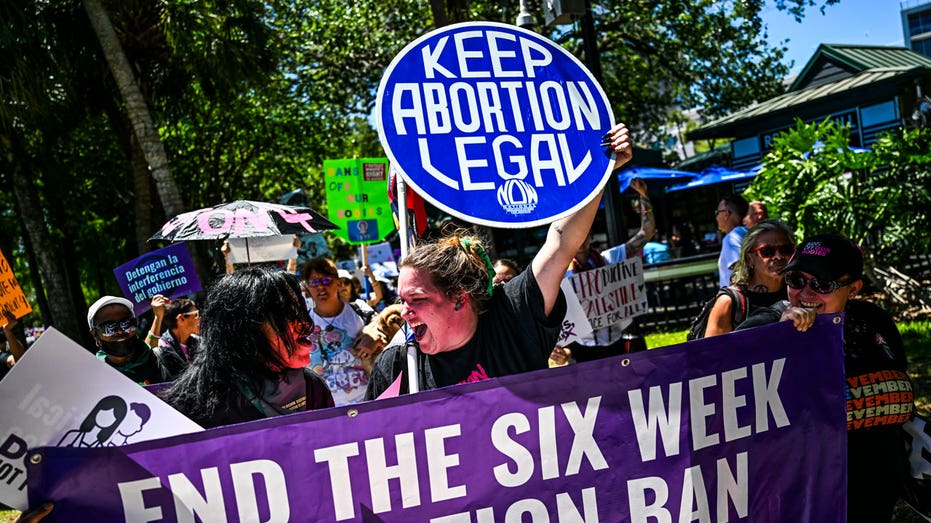
Pro-life activists and leaders in Missouri are sounding the alarm about a sweeping amendment they say would not only result in unrestricted abortion through all nine months of pregnancy, but would also “go way beyond abortion” and enshrine transgender surgeries on children. The amendment is titled the “Right to Reproductive Freedom Initiative,” or simply “Amendment 3.” According to the ballot’s description of the amendment, a vote in favor “establishes a constitutional right to make decisions about reproductive health car … and allows abortion to be restricted or banned after Fetal Viability except to protect the life or health of the woman.” DESANTIS ADMIN BLOCKED IN ABORTION AD FIGHT UNTIL AFTER ELECTION DAY, JUDGE RULES Advocates for the amendment, which include Planned Parenthood and ACLU of Missouri, claim that the measure will simply reverse the state’s current abortion law, which, except in cases of medical emergency, bans the procedure starting at conception. However, opponents say the amendment is so vague that it leaves the door open to an array of abuses, including allowing transgender surgeries on children. “This is a massive train bearing down on Missouri,” Mary Catherine Martin, an attorney with the Thomas More Society, told Fox News Digital. Holding up a copy of the amendment’s language, Martin said the measure is significantly longer than other abortion amendments being considered across the country. MAJOR PRO-LIFE GROUP KNOCKS ON 4 MILLION DOORS IN 2024 SWING STATES Another opponent of the amendment, Cassidy Anderson, who helps lead a political action committee called “Vote No on 3,” told Fox News Digital that because the amendment does not define “reproductive health care” or set an age limit, it can easily be used as a legal justification for sex change surgeries on children. “You would think in an initiative that is being advertised as a women’s health care initiative… would say the word ‘woman’ somewhere in the ballot language,” she said. “It never says the word woman, it refers to persons. It doesn’t define age. It doesn’t define sex. It doesn’t define anything.” Anderson’s group has devoted around $3 million to urge Missourians to reject the amendment. Vote No on 3 took in another $1.7 million at the end of October. However, she said they are facing an uphill battle with the other side receiving around $75 million from outside entities like George Soros and Michael Bloomberg. “What does Michael Bloomberg have to do with Missouri politics? But that’s what we’re up against,” she said. Because of this outside funding, Anderson said the amendment’s supporters have been able to outpace her group four-to-one in terms of ad buys. Despite this, she said polling on the issue is showing a “really close split.” Several prominent Republicans in the state, including Gov. Mike Parson and Sen. Josh Hawley, have also spoken out against the amendment. Hawley told Fox News Digital, “Amendment 3 goes way beyond abortion – it would constitutionally protect transgender surgeries for minors without parental consent.” “That’s beyond extreme. And it’s wrong for Missouri,” said Hawley. Get the latest updates from the 2024 campaign trail, exclusive interviews and more at our Fox News Digital election hub.
Stefanik slams Democrats’ ‘scare tactics’ on Trump’s record with women on IVF, abortion
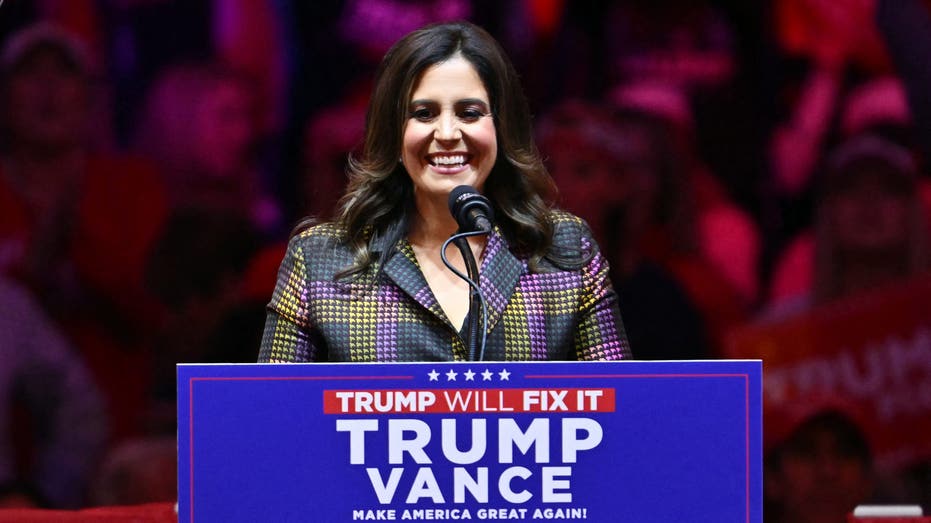
House Republican Conference Chairwoman Rep. Elise Stefanik, R-N.Y., slammed Democrats’ “scare tactics” regarding former President Trump’s stance on women in terms of abortion and IVF access on Sunday. At a recent campaign stop in Wisconsin, Vice President Harris claimed that Trump would “ban abortion nationwide,” “restrict access to birth control, put IVF treatments at risk and force states to – get this – monitor women’s pregnancies.” Democrats have run ads across the country on the issue. Trump has repeatedly stated he would not sign a national abortion ban, and Stefanik, in an appearance on “Fox News Sunday,” reiterated how Trump “believes this issue should be decided at the states” and supports three exceptions for abortions in circumstances of rape, incest and to save the life of the mother. “When it comes to IVF, that is a false smear,” Stefanik told “Fox News Sunday” host Shannon Bream. “President Trump wants to expand access to IVF, make birth control available, and the reason why Democrats are only talking about this issue is these are scare tactics because they are losing on every other issue. Whether it’s the economy, the border, safety and security around the world, we’re going to run and win, and I think that women when they look at the key top issues, they are increasingly looking at their lives were much better under President Trump versus the crises that we’ve seen under Kamala Harris today.” DOZENS OF FEMALE TRUMP STAFFERS, SURROGATES BLAST MARK CUBAN AS ‘MISOGYNISTIC’ IN NEW CAMPAIGN AD Stefanik also slammed Harris for failing to condemn Mark Cuban’s recent remarks about female Trump supporters. Cuban faced backlash for suggesting on “The View” last Thursday that Trump neglects to surround himself with “strong, intelligent women,” claiming that they intimidate and challenge him. Stefanik pointed to how she, Arkansas Gov. Sarah Huckabee Sanders and Republican National Committee co-chair Lara Trump have been traveling across the country as surrogates of the Trump campaign. Stefanik also noted that under Trump’s administration, the U.S. had “the highest number of women ever in the workforce, the largest wage and salary increase for working women ever,” and “child care was affordable.” The congresswoman also highlighted how inflation drove up grocery, energy and utility costs, impacting women, as well as the safety issues for women arising from the lack of border security. “Kamala Harris did not condemn Mark Cuban’s just disgraceful comments saying that President Trump does not surround himself with strong, intelligent women,” Stefanik said. “Whether you compare it to the first lady, his daughter Ivanka Trump or so many senior level women that are working in support of his campaign.” Asked if she would accept Cuban’s apology issued after the backlash, Stefanik responded by noting how Democrats, including Hillary Clinton, described Trump supporters as “deplorables” in 2016, “then they called us Nazis, then Mark Cuban said there are no strong or intelligent women around President Trump, and just yesterday you had Kathy Hochul smearing voters who support Republicans as ‘anti-American.’” HOUSE OVERSIGHT RAMPS UP DEMANDS FOR WHITE HOUSE TO RELEASE ACCURATE BIDEN ‘GARBAGE’ TRANSCRIPT “President Trump is running to unify this country on the goals of securing the border, strengthening the economy,” she said. “So Kamala Harris should condemn that, and they didn’t, the campaign failed to do that, and that’s offensive to so many women across this country, not just elected official women. Gold Star moms, Gold Star wives, women veterans who are proudly supporting President Trump.” Stefanik later discussed Election Day predictions for Congress. She deemed New York the “epicenter” of the House majority, as several first-term Republican incumbents face competitive challenges from Democrats in the deep blue state. “President Trump on the ballot is a net gain to every Republican candidate for Senate and House,” Stefanik said. “I’m from New York, obviously, New York is the epicenter for the race for the House Republican majority, Republicans, when it comes to early voting, increased by 50% compared to where we were in 2022, and that was cycle where of course we flipped those five House seats.” “Kamala Harris is underperforming Joe Biden in every single swing district across the country if you look at Joe Biden’s performance in 2020,” she said. “I think on a good night we can win up to 10 seats, Shannon, which would be a sizable Republican majority. We’re not taking anything for granted, but the issues are on our side.… On every top issue, Republicans are winning. President Trump is winning, and I think we could be in for some surprises on Election Day that House Republicans will overperform the predictions.”
Delhi pollution: Air quality worsens in capital, AQI worst in India at…

Despite the temporary relief provided by the winds, Delhi saw a spike in pollution levels following Diwali, with a noticeable jump recorded on Sunday.
RFK Jr. says Trump White House will get fluoride out of drinking water
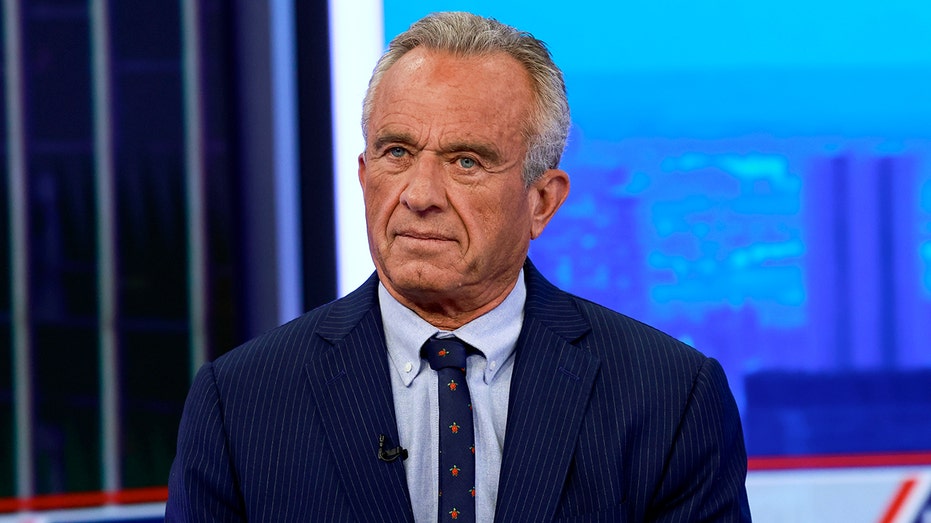
Robert F. Kennedy Jr. said Saturday that a potential Trump White House would advise communities to remove fluoride from drinking water, which would overturn decades of public health guidance. Fluoride is a naturally occurring mineral in water that oral physicians say can help to prevent cavities at the right doses. The U.S. Centers for Disease Control and Prevention describes community water fluoridation – the practice of adding fluoride to drinking water to increase its concentration to optimal levels – as a “cornerstone strategy” to prevent cavities and one of the “10 great public health interventions of the 20th century.” However, health agencies warn long-term ingestion of fluoride in excess doses carries various health risks, and critics like Kennedy have campaigned to end community water fluoridation. The Environmental Protection Agency has established a maximum allowable concentration of fluoride in public drinking water to prevent adverse health effects. Kennedy declared the Trump White House would advise bringing that allowable concentration to zero on its first day in power. FEDERAL JUDGE ORDERS EPA FURTHER REGULATE FLUORIDE IN DRINKING WATER DUE TO CONCERNS OVER LOWERED IQ IN KIDS “On January 20, the Trump White House will advise all U.S. water systems to remove fluoride from public water,” Kennedy posted on X. “Fluoride is an industrial waste associated with arthritis, bone fractures, bone cancer, IQ loss, neurodevelopmental disorders, and thyroid disease,” he claimed, adding that former President Trump and first lady Melania Trump “want to Make America Healthy Again.” His statement provoked a wave of criticism on social media and renewed expert concerns about Kennedy – who has often clashed with the scientific consensus on vaccine safety – being placed in a position of authority over public health. “While President Trump has received a variety of policy ideas, he is focused on Tuesday’s election,” Trump campaign senior adviser Danielle Alvarez said in response to media questions about Kennedy’s statement. Currently, more than 200 million Americans, or about 75% of the population, drink fluoridated water. FLUORIDE IN WATER LINKED TO LOWER INTELLIGENCE In 1950, federal officials endorsed water fluoridation to prevent tooth decay, and they continued to promote it even after fluoride toothpaste brands hit the market several years later. In 1945, Grand Rapids, Michigan, became the first city in the world to fluoridate its water supply. Experts have long said that washing teeth with fluoride is not comparable to the risks posed by ingesting fluoride, with the latter potentially triggering harmful neurotoxic effects. Officials lowered their recommendation for drinking water fluoride levels in 2015 to address a tooth condition called fluorosis, that can cause splotches on teeth and was becoming more common in U.S. kids. In August, a federal agency determined “with moderate confidence” that there is a link between higher levels of fluoride exposure and lower IQ in kids. The National Toxicology Program based its conclusion on studies involving fluoride levels at about twice the recommended limit for drinking water. Then in September, a federal judge in California cited that study in an order requiring the EPA to further regulate fluoride because high levels pose “an unreasonable risk” to children. “Indeed, EPA’s own expert agrees that fluoride is hazardous at some level of exposure,” U.S. District Judge Edward Chen said. “And ample evidence establishes that a mother’s exposure to fluoride during pregnancy is associated with IQ decrements in her offspring.” Even so, the judge said the court “does not conclude with certainty that fluoridated water is injurious to public health.” RFK JR INDICATES TRUMP ‘PROMISED’ HIM ‘CONTROL’ OVER ‘PUBLIC HEALTH AGENCIES’ Since 2015, federal health officials have recommended a fluoridation level of 0.7 milligrams per liter of water. For five decades before that, the recommended upper range was 1.2 “after evidence increasingly established fluoride’s connection to adverse effects, including severe enamel fluorosis, risk of bone fracture, and potential skeletal fluorosis,” the judge wrote. Skeletal fluorosis is a potentially crippling disorder which causes weaker bones, stiffness and pain. The World Health Organization has set a safe limit for fluoride in drinking water of 1.5. Separately, the EPA has a longstanding requirement that water systems cannot have more than 4 milligrams of fluoride per liter of water. Kennedy has said that Trump has promised to give him “control” over the Department of Health and Human Services (HHS) and the U.S. Department of Agriculture (USDA), should the former president win the White House on Tuesday. “I stand ready to help him rid the public health agencies of their pervasive conflicts and corruption and restore their tradition of gold-standard, evidence-based science,” Kennedy told the New York Times in a statement. The Trump campaign has said no decisions have been made about Cabinet-level positions or personnel, including the secretaries of HHS and USDA. “No formal decisions about Cabinet and personnel have been made, however, President Trump has said he will work alongside passionate voices like RFK Jr. to Make America Healthy Again by providing families with safe food and ending the chronic disease epidemic plaguing our children,” Trump campaign national press secretary Karoline Leavitt said in a statement. “President Trump will also establish a special Presidential Commission of independent minds and will charge them with investigating what is causing the decades-long increase in chronic illnesses,” she added. Trump told supporters at a rally on Saturday that he told Kennedy he “can work on food, you can work on anything you want,” except energy policy. “He wants health, he wants women’s health, he wants men’s health, he wants kids, he wants everything,” Trump said. Fox News Digital’s Michael Dorgan, Alex Nitzberg and the Associated Press contributed to this report.
Pune: 35-year-old man killed by speeding car while bursting firecrackers on Diwali, video surfaces

Residents of the locality have demanded strict action against the accused driver and warned of a protest if the police fail to apprehend him, it was stated.
Trump, Harris neck and neck in battleground states with under 48 hours until Election Day, polls find
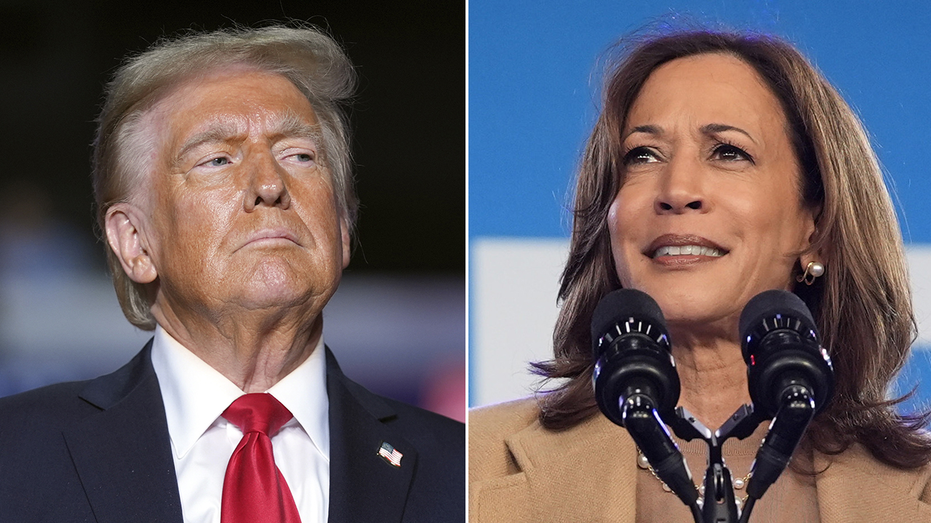
A new series of polls released Sunday show former President Trump and Vice President Harris are neck and neck in seven battleground states with less than 48 hours to go until Election Day. The New York Times/Siena College polls of likely voters show Trump and Harris are tied in Pennsylvania and Michigan. In Arizona, Trump is leading Harris 49-45%, while Harris is ahead of Trump 49-46% in Nevada, 49-47% in Wisconsin, 48-46% in North Carolina and 48-47% in Georgia. A total of 7,879 likely voters were surveyed across the seven battleground states between Oct. 24 to Nov. 2, with 1,025 in Arizona, 1,004 in Georgia, 998 in Michigan, 1,010 in Nevada, 1,010 in North Carolina, 1,527 in Pennsylvania and 1,305 in Wisconsin, according to The New York Times. The polls have a margin of error of 3.5%. HARRIS AND TRUMP CAMPAIGN ON THE FINAL WEEKEND BEFORE ELECTION DAY Of the 8% of voters who indicated that they only recently decided who they were voting for, 55% said they are backing Harris, compared to 44% for Trump, The New York Times reported. The newspaper also reported that 11% of voters still remain undecided or persuadable, down from 16% a month ago. Across all the battleground states, 24% of the likely voters said the economy – which includes jobs and the stock market – is their top issue, followed by abortion with 18% and immigration with 15%. HOW TO WATCH ELECTION DAY COVERAGE ON FOX NEWS DIGITAL Harris is underperforming compared to President Biden in 2020 among younger voters, Black voters and Latino voters, according to The New York Times. In Pennsylvania, incumbent Sen. Bob Casey, a Democrat, is leading challenger David McCormick 50-45%, which is down from nine points in September, the newspaper says. In Wisconsin, the polls show incumbent Democrat Sen. Tammy Baldwin’s lead over Republican Eric Hovde is narrowing as well, as it’s currently 50-46%, which is down from eight points around a month ago, The New York Times adds. The race for Michigan’s open Senate seat is also closely contested, with Democrat Rep. Elissa Slotkin leading Republican challenger Mike Rogers 48-46%, the polls show.
What is the Electoral College? How does it work?
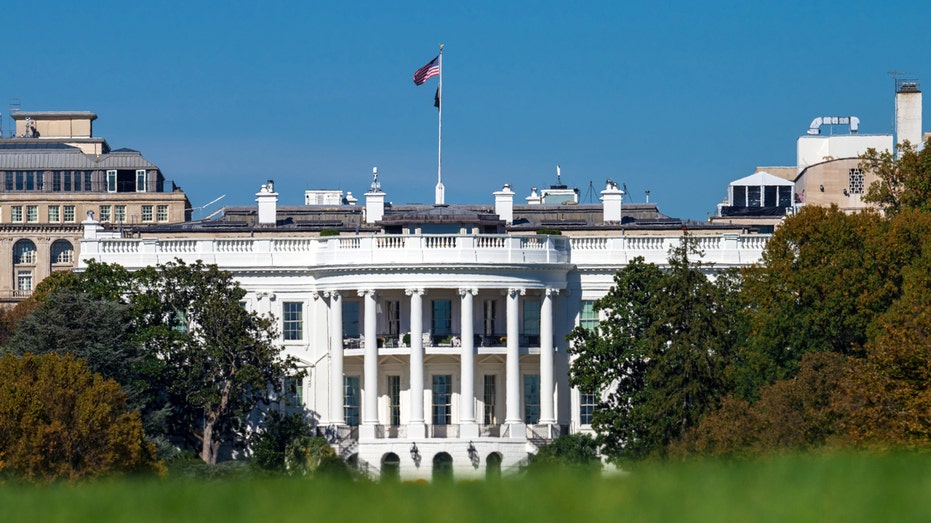
Former President Donald Trump and Vice President Kamala Harris have spent months traveling the country on the 2024 presidential election campaign trail, vying for America’s vote to move into the White House. With every new presidential election cycle, U.S. citizens ask themselves the same question, keeping in mind the power of the Electoral College: “Does my vote count?” Local and state officials elected into office in the U.S. are able to do so by winning the popular vote. However, the President of the United States is selected with the help of the Electoral College and the popular vote. ELECTION STRAIN PUSHES 1 OF 3 AMERICANS TO LIMIT TIME WITH FAMILY, FRIENDS Most often, the popular vote and the electoral vote mirror each other, but there are few instances in history when the two have differed. Most recently, in 2016, Trump won the Electoral College but lost the popular vote to Hillary Clinton. The Electoral College is the formal process in which the President and Vice President of the United States are elected into office. “The Electoral College, as we know it, was created by the 12th Amendment of the Constitution, which was ratified in 1804. Today, there are a total of 538 electoral votes, and a candidate needs at least 270 to win,” Fox News’ Todd Piro explained on “Fox and Friends” in November 2020. In the Electoral College, Washington D.C. has its own three electors. In 48 states, plus Washington D.C., the winner of the popular vote gets all the electoral votes for that state, according to USA.gov. This is apart from Maine and Nebraska, where a proportional system is used, per the source. WHAT ARE ELECTION BETTING ODDS? EXPERT EXPLAINS WHY TRUMP IS CURRENT FAVORITE While the popular vote takes place in November, the electoral vote doesn’t take place until about a month later, in mid-December. Who is chosen as a state’s electors, how they are chosen and when they are picked vary state-by-state, but there is a two-part system in place, according to the National Archive’s website. Slates of electors are chosen at state party conventions, or they are voted on by the party’s central committee based on state or national party rules. During a general election, voters across the states cast their ballots to select their electors who will represent their decesion in the presidential election. The names of electors may or may not appear on the ballots. Electors pledge to vote for specific candidates, though they are not legally obligated to do so. While there is no federal law in place for electors to vote a certain way, penalties, like being disqualified from future ballots, are in place. Through the years, there have been many calls made to change the Electoral College as we know it. “Over the years, there have been hundreds of proposed amendments to change the Electoral College, but only one has gotten remotely close to being passed after the 1968 presidential election saw Richard Nixon win against Hubert Humphrey and George Wallace,” Piro said. “A 1969 bill to replace the Electoral College with the popular vote passed in the House of Representatives, and though it was endorsed by Nixon, the bill eventually died in the Senate after it was filibustered, and it still stands today.” Recently, Minnesota Gov. Tim Walz called for the elimination of the Electoral College altogether. “I think all of us know the Electoral College needs to go,” he said at a California fundraising event in October, according to a pool report at the event, Bloomberg reported. “We need a national popular vote, but that’s not the world we live in.” In order to do away with the system created by the Founding Fathers, a major constitutional change would need to be made.
Delhi-NCR pollution: Targeted measures enforced under GRAP for 16 days from…

In Delhi alone on average 81 MRSMs were deployed daily while in Haryana and UP, 36 MRSMs were deployed daily to arrest the dust pollution from roads.
